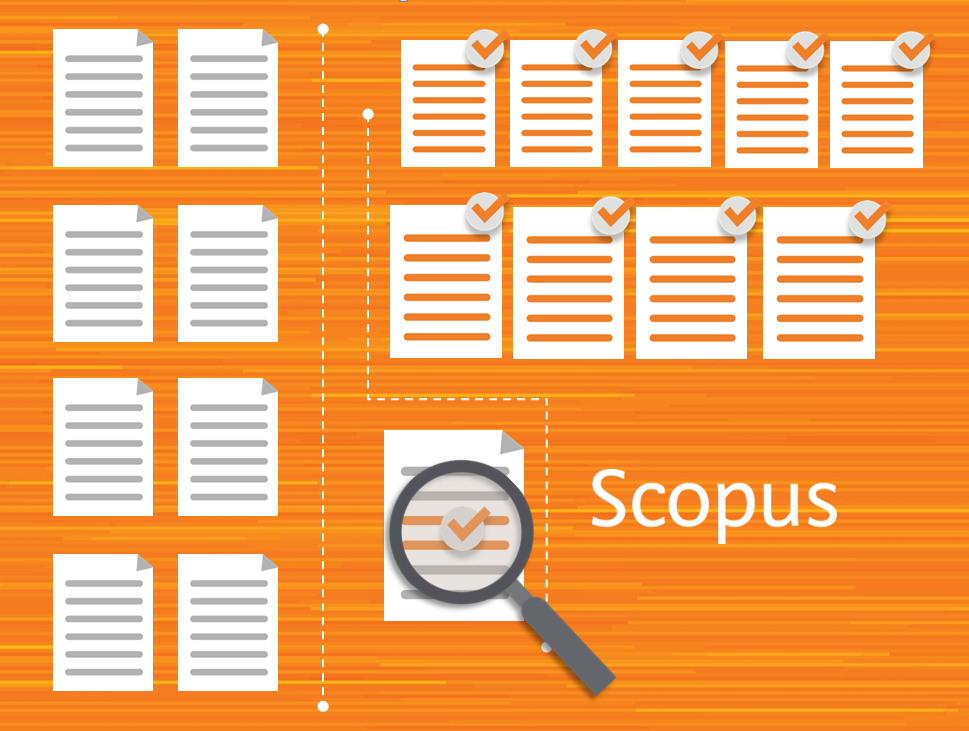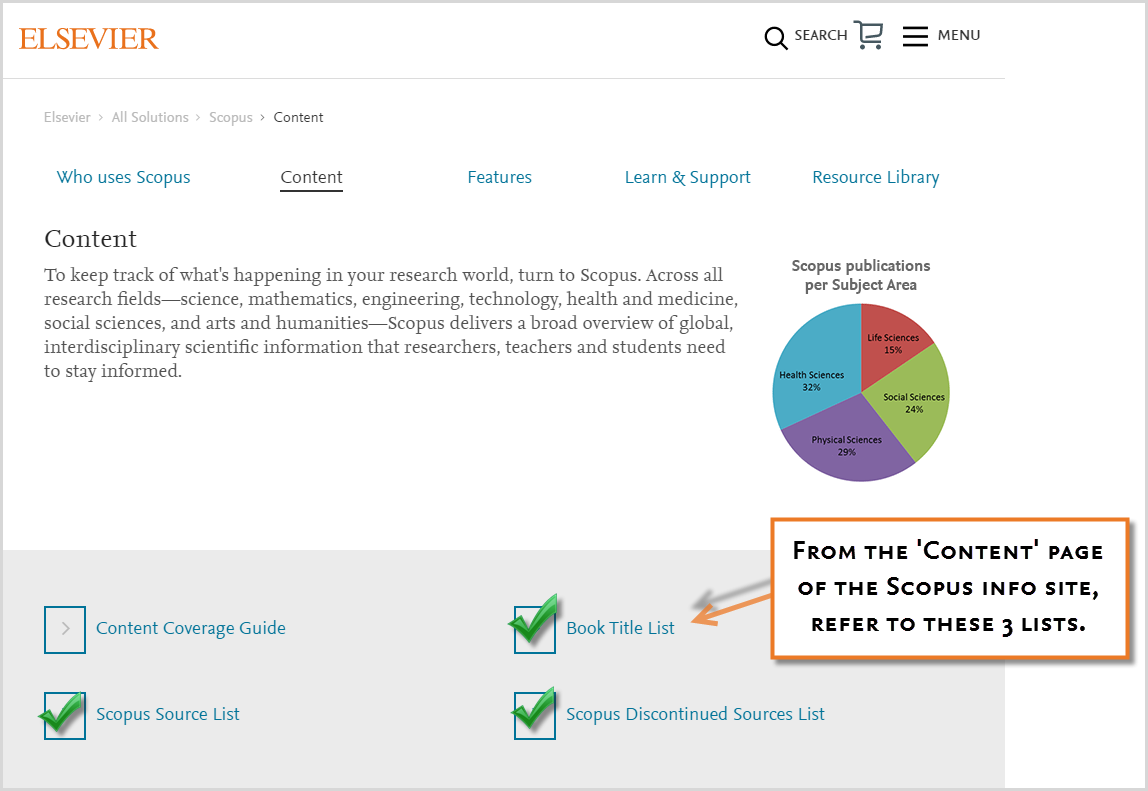Is a title indexed in Scopus? A reminder to check before you publish
“ElsevierThis quote is a testament to the positive impact of the independent Scopus Content Selection and Advisory Board (CSAB)
has also done extensive work addressing the issue of journals that have
been suspended from its research publication database Scopus for
inappropriate publishing behaviour – this is an ongoing task that
ensures that the papers that we do measure really represent good quality
research and those from suspended are not counted.”
— Times Higher Education: World University Rankings blog: what’s new for 2016-2017?
working with the Scopus Content Product team to ensure that both
quality standards and publication practice standards are in place for
Scopus. As part of this effort, several initiatives have been adopted
over the past two years helping to reinforce that content indexed in
Scopus

represents “good quality research,” and that underperforming titles (as
determined by the CSAB re-evaluation process), or titles for which
concerns have been raised, are identified and their ongoing content
coverage discontinued.
When a title no longer meets the quality standards of Scopus it is
added to the ‘Discontinued Sources list,’ maintained on the Scopus info
site. Publishing this list, along with both the source title and book
title lists, provides transparency into what is, or will no longer be,
covered in Scopus; important information to have at hand when you are
looking for which titles you want to publish in.
In fact, just over two years ago we published this
blog post about journals that purport to be indexed by Scopus but
really are not, and how to check if a title is truly indexed in Scopus
before you publish. Both the large number of daily reads this post still
receives, and feedback we receive from authors about journals claiming
to be indexed in Scopus but indeed are not, indicates that now is a good
time for a quick refresher on how to know which titles are indexed in
Scopus, which are not, and which will no longer continue to be indexed
going further.
Here’s how to verify if a title is indexed in Scopus:
- Check our title lists. You
don’t need access to Scopus to find out what is and what is NOT
covered, the information is publicly available from our info page.There
are 3 lists to check against:- Scopus Source List: The complete list of indexed journal titles
- Book Title List: The complete list of indexed book titles
- Scopus Discontinued Sources List: The list of journal titles for which indexing has been discontinued (and as of which volume and issue)
- Find it in Scopus. You can also go to Scopus.com itself to check. Open the “Sources” page and search for a title, publisher or ISSN.
- Ask! When in doubt, contact the Scopus Helpdesk and one of our Customer Service representatives can let you know if a title is indexed (or is going to be indexed).
listed as ‘Discontinued’ in Scopus.com, but not be included in the
‘Scopus Discontinued Sources List.’ This includes:
- If Scopus has not received journal content from the publisher in
the last three years, the title will appear as ‘discontinued.’ Once
recent material is received from the publisher and loaded to Scopus,
then the ‘discontinued’ note will be removed once the Scopus Source page
is refreshed. - When a journal is truly discontinued by the
publisher. When this happens, the ‘discontinued’ notification will
appear 3 years after the discontinuation. This is an automated process
order to be indexed. For a journal (and consequently its articles) to be
indexed in Scopus, a publisher must proactively suggest the title for
indexing. The journal title is evaluated by the independent CSAB as to
whether or not it will be included in the Scopus (see more on Scopus journal evaluation)
To learn more about Scopus Content, refer to these additional resources:
Is a title indexed in Scopus? A reminder to check before you publish | Elsevier Scopus Blog

No comments:
Post a Comment